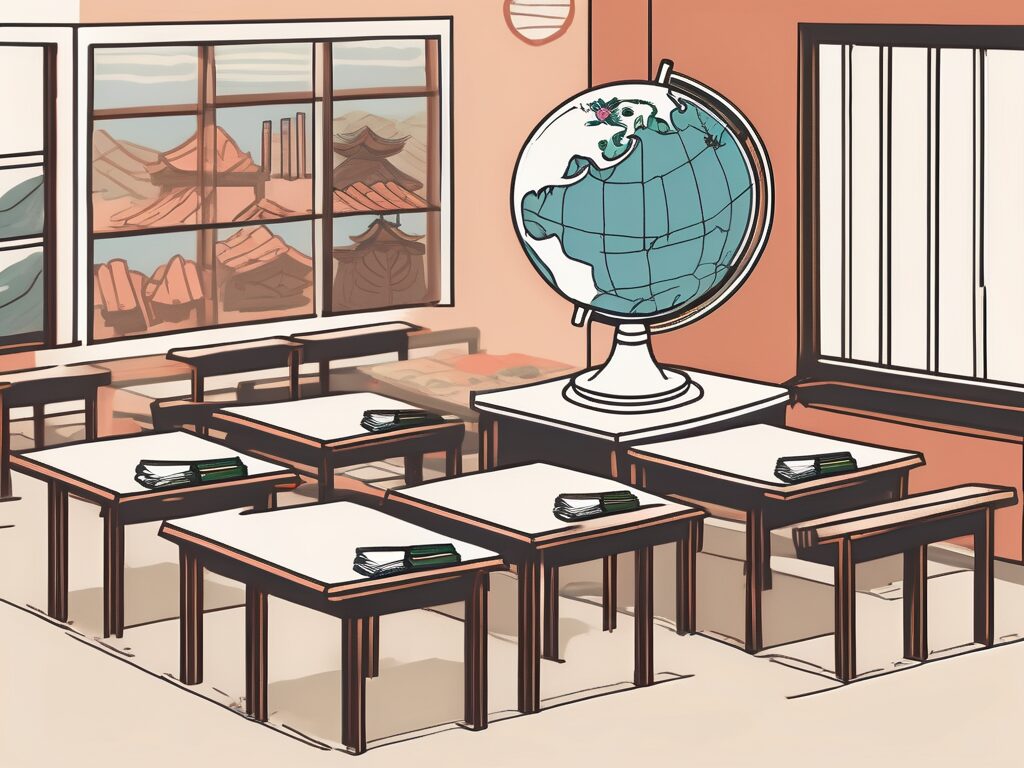Top 5 Barriers to Education in South Korea: Challenges for 2025
South Korea is recognized globally for its educational achievements and rigorous academic standards. However, the nation faces several barriers that impede educational progress. This guide aims to provide education consultants with a comprehensive overview of the primary challenges within the South Korean education system, focusing on societal, economic, and systemic factors that international teachers should consider when navigating this landscape.
1. Societal Pressure and Student Well-Being
A predominant barrier to education in South Korea is the overwhelming societal pressure exerted on students. This pressure manifests in various forms, leading to elevated stress levels that adversely affect students’ mental health and overall well-being. The competitive nature of the education system, where academic success is predominantly gauged by university entrance examination results, intensifies this pressure.
- Students are often compelled to prioritize academic excellence over personal interests and extracurricular activities.
- This high-pressure environment can result in burnout, diminishing motivation, and ultimately hindering effective learning.
High Suicide Rates Among Students
The high-stress educational environment has contributed to South Korea’s alarming student suicide rates, one of the highest globally. The intense pressure to achieve academically has led some students to perceive suicide as the only escape, underscoring the critical need for enhanced mental health support within educational institutions.
In contrast, countries such as the United Kingdom report significantly lower student suicide rates, highlighting the urgent need for intervention and support mechanisms in South Korea.
2. Economic Barriers to Access
The financial implications of education in South Korea present another significant barrier. Many families feel obligated to enroll their children in private academies, known as hagwons, to supplement their formal education. The costs associated with these institutions can be substantial, creating a dual financial burden on families.
- Parents pay for public education through taxes and additionally for private tutoring, which can exacerbate economic disparities.
- This situation disproportionately affects lower-income families, potentially widening the educational gap across socio-economic strata.
The Hagwon System
While hagwons provide additional educational opportunities, they can also deepen educational inequalities. Students from affluent backgrounds can access more extensive and higher-quality hagwon education, thereby gaining a competitive advantage over their less privileged peers. This phenomenon is reminiscent of the private tutoring landscape in other countries, yet the reliance on hagwons in South Korea is notably more pronounced, making it a critical barrier to equitable education.
3. Curriculum Limitations and Teaching Methodologies
The curriculum and pedagogical approaches employed in South Korea can also hinder effective learning. The emphasis on rote memorization and high-stakes testing often stifles creativity and critical thinking—skills that are essential in the contemporary educational landscape.
- Students may find themselves constrained by a system that prioritizes memorization over innovative thinking.
- This limitation can impede their ability to engage in complex problem-solving and creative endeavors.
Lack of Curriculum Diversity
Furthermore, the curriculum’s narrow focus on subjects such as Mathematics and Science often marginalizes the arts and humanities. This lack of diversity can restrict students’ holistic development and limit their exposure to a broad spectrum of disciplines.
In essence, an education system that lacks diversity may fail to cultivate well-rounded individuals capable of thriving in a multifaceted world.
Conclusion
In summary, while South Korea’s education system boasts numerous strengths, it is also confronted with significant barriers that require urgent attention. Addressing these challenges necessitates a collaborative effort among government entities, educational institutions, parents, and students. By proactively tackling these issues, South Korea can enhance its educational framework, ensuring it remains responsive to the evolving needs of its student population.
Empower Your Teaching Career with IPGCE
As international educators navigate the complexities of South Korea’s education system, it is imperative to have robust support mechanisms in place. The IPGCE program is dedicated to equipping teachers with the qualifications and skills necessary to excel in international educational settings. By enrolling in the UK’s premier Teacher Training Course, educators can enhance their credentials, improve career prospects, and connect with a global professional network. With flexible online study options, participants can effectively balance professional development with existing commitments. Do not let insufficient qualifications or limited opportunities hinder your career. Join the UK’s #1 Teacher Training Course today and take a decisive step towards fostering a more inclusive and diverse educational future.

